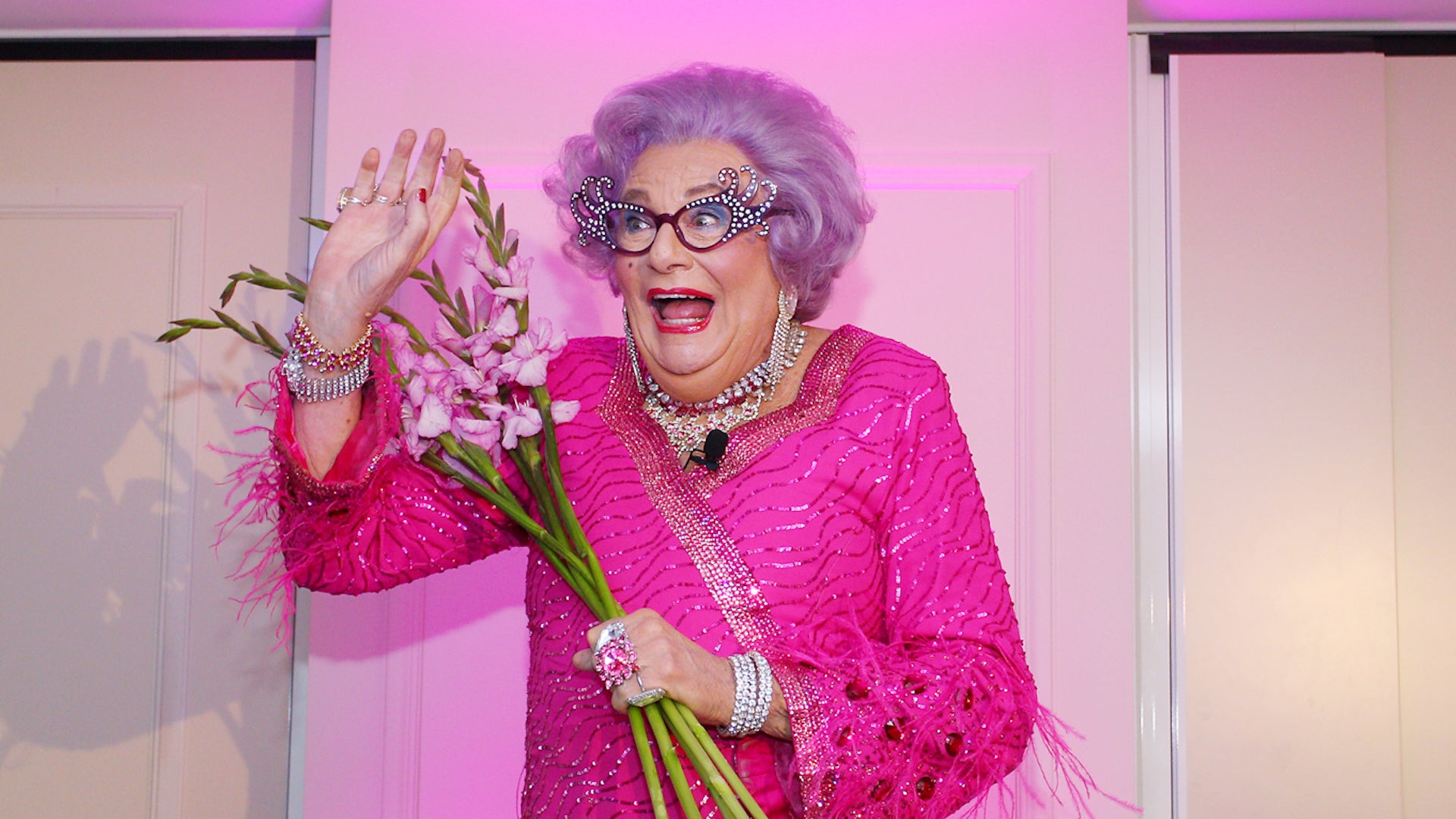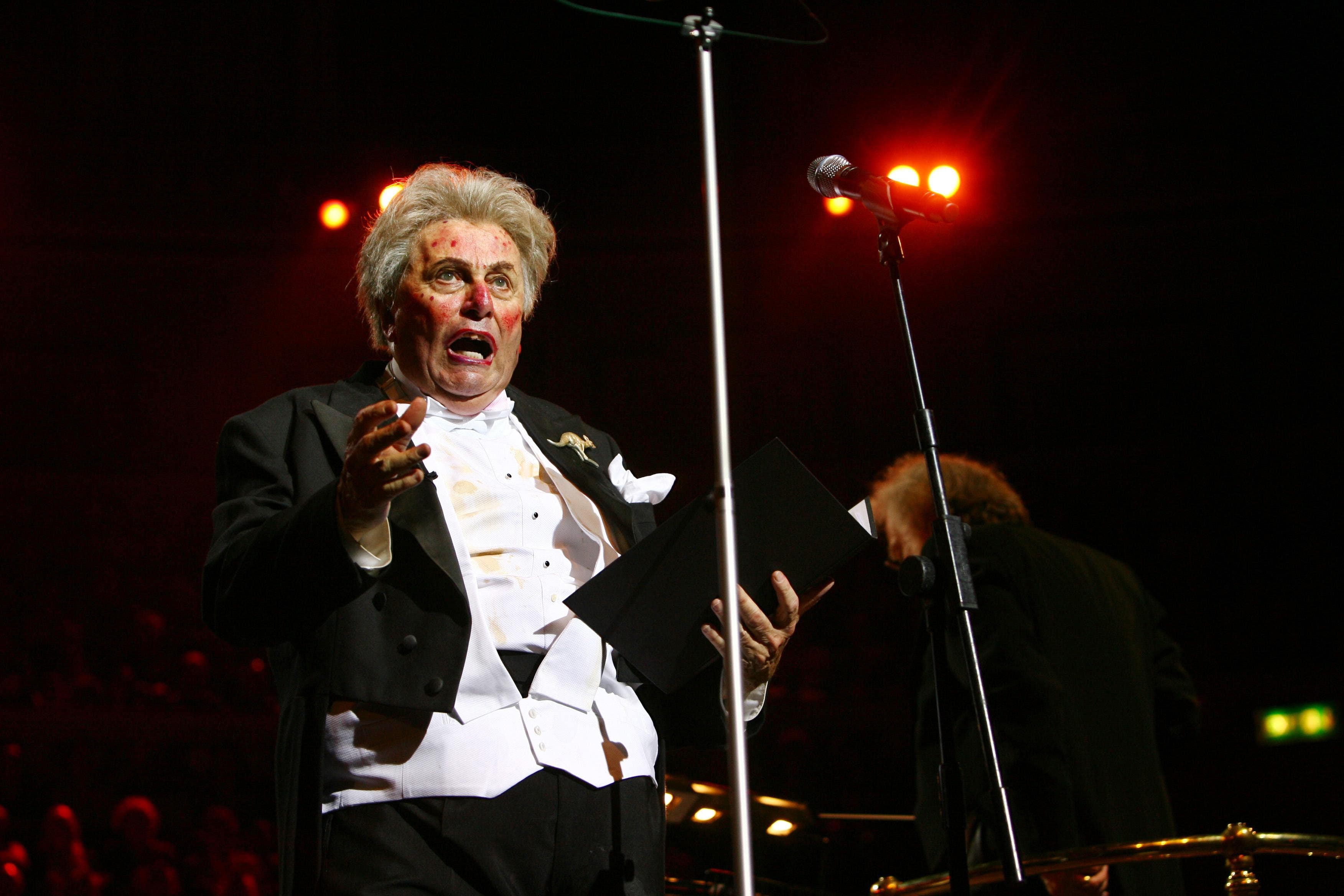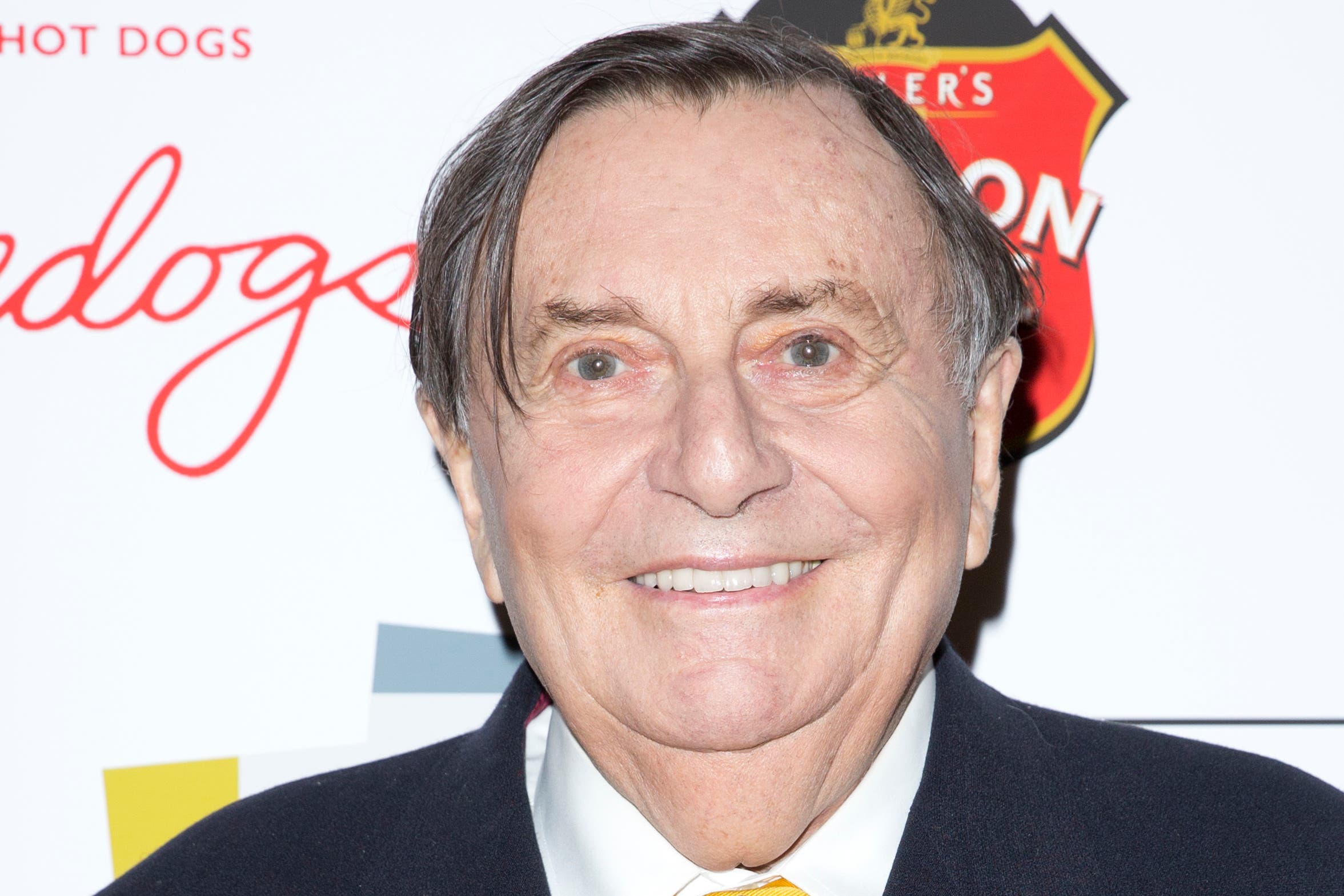Barry Humphries was more than just Dame Edna - here are his other alter egos
Across a seven-decade career, the entertainer delighted audiences with characters including gentlemen, regular ‘blokes’ and boorish politicians
Your support helps us to tell the story
From reproductive rights to climate change to Big Tech, The Independent is on the ground when the story is developing. Whether it's investigating the financials of Elon Musk's pro-Trump PAC or producing our latest documentary, 'The A Word', which shines a light on the American women fighting for reproductive rights, we know how important it is to parse out the facts from the messaging.
At such a critical moment in US history, we need reporters on the ground. Your donation allows us to keep sending journalists to speak to both sides of the story.
The Independent is trusted by Americans across the entire political spectrum. And unlike many other quality news outlets, we choose not to lock Americans out of our reporting and analysis with paywalls. We believe quality journalism should be available to everyone, paid for by those who can afford it.
Your support makes all the difference.Barry Humphries was known internationally for a plethora of alter egos who poked fun at the nuances of all sections of Australian society.
Across a seven-decade career, the entertainer delighted audiences with characters including softly spoken gentlemen, regular “blokes”, and boorish politicians, whose stories often overlapped.
Following his death in Sydney aged 89, here is a look back at some of Humphries’ classic characters.
Dame Edna Everage
Perhaps his most well-known and memorable character, Dame Edna Everage was created after Humphries joined the newly formed Melbourne Theatre Company in 1955.
After beginning as a drab Melbourne housewife satirising Australian suburbia, the character evolved an increasingly boisterous and eccentric persona, with “wisteria hue” hair and cat eye glasses.

Rarely seen without bunches of gladioli flowers, Dame Edna was known for her extravagant wardrobe, ornate glasses and gaudy, custom-made gowns, which featured Australian symbols such as the national flag and the Sydney Opera House.
She made her film debut in John B Murray’s The Naked Bunyip in 1970.
Humphries later successfully transitioned the character from stage to television, performing in the self-titled talk show The Dame Edna Experience, which ran for two seasons in 1987 and 1989 respectively, and other programmes.
Sir Les Patterson
Humphries often performed the character of Australian statesman and cultural attache Sir Les Patterson in tandem with Dame Edna, though the two were polar opposites.
Coarse, lecherous and often intoxicated, Sir Les appeared in high-profile interviews on shows including Parkinson, in which he was satirically billed as “impugning the fundamental refinement of the Australian character”.
He would often appear looking dishevelled and red-faced, dressed in a dirty suit, with a drink and cigarette in hand.
Sir Les popped up in pre-recorded segments of Dame Edna’s talk show, and in 1987, Humphries appeared on BBC Radio 4’s Today programme, where he played both characters simultaneously.

Sandy Stone
One of Humphries’ enduring yet less obtrusive characters was the gentlemanly Sandy Stone.
Mr Stone, a dead man who inhabits the world of his youth, would often appear in a bed shirt and dressing gown to regale audiences with stories of his life.
Unlike Dame Edna and Sir Les, Humphries reportedly had a genuine affection for the character, which was reflected in his soft delivery and gentle persona.
In 1990 he published a book, titled The Life And Death Of Sandy Stone, which contained a collection of the character’s monologues with humorous footnotes.

Barry McKenzie
Originally created by Humphries as part of a comic strip for UK publication Private Eye, Barry McKenzie is a young Australian man with a penchant for beaches, beer and beautiful “sheilas”.
The character was supposed to parody the boorish behaviour of Australians overseas – ignorant, loud and drunk, while also retaining a straightforward and friendly aspect.
The Private Eye comic strips were later compiled into three books – The Wonderful World Of Barry McKenzie, Bazza Pulls It Off! and Bazza Comes Into His Own: The Final Fescennine Farago Of Barry McKenzie, Australia’s First Working-Class Hero – With Learned And Scholarly Appendices And A New Enlarged Glossary.
The first two books were published in London but were initially banned in Australia over indecency.
Barry McKenzie was later the subject of two films in the 1970s, starring Barry Crocker in the title role, and featuring Humphries, this time in the role of “aunt” Edna Everage.
Bruce the shark
More recently Humphries has lent his voice to the popular Pixar film Finding Nemo, in which he played the intimidating Great White Bruce the shark.
Despite his appearance, Bruce leads the fish-friendly support group, with the well-known slogan “fish are friends, not food” – though still retains his latent killer instincts.
Humphries was also recruited to play the role of the Goblin King in the first instalment of Peter Jackson’s The Hobbit trilogy: An Unexpected Adventure.

